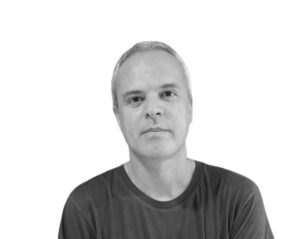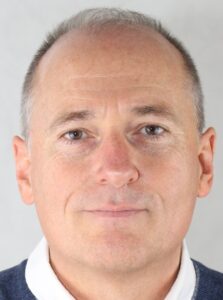The Children’s Tumor Foundation is dedicated to funding NF research, as well as promoting opportunities for funding outside of our organization. We are committed to finding a cure for NF!
Requests for Applications (RFAs)
The Children’s Tumor Foundation has historically acted as a ‘seed funder’ to provide funding, especially to early-career NF researchers and early-stage NF research, which require additional time and support before becoming eligible for more extensive governmental or industrial funding.
CTF established the Discovery Fund as a mechanism to support researchers and clinicians engaged in novel and fundamental NF investigations. The Discovery Fund encompasses the following award programs: Young Investigator Award (YIA), Drug Discovery Initiative (DDI), and Clinical Research Awards (CRA). Additional funding opportunities are made through our Contract Awards.
Discovery Funds Grants Schedule
Young Investigator Award (YIA)
Letter of Intent (LOI) Open November 1 – December 2, 2024
Award Start Date – July 1, 2025
Drug Discovery Initiative (DDI)
Application Open January 6 – February 3, 2025
Award Start Date – July 1, 2025
Clinical Research Award (CRA)
Letter of Intent (LOI) Open January 21 – February 18, 2025
Award Start Date – September 1, 2025
Young Investigator Award (YIA)
The Young Investigator Award is CTF’s longest running award program, and provides two-year salary support to early career NF researchers, such as senior doctoral students and post-doctoral researchers, to help them get established as independent NF investigators. Since its inception, several YIAs have made groundbreaking research findings and notable publications through this program, and many have advanced to become leaders in the NF research and clinical communities. The main function of the YIA program has been to serve as a ‘seeding mechanism’ for researchers to secure larger grants, such as from the NIH and CDMRP NFRP.
Submit Letter of Intent (LOI)
The YIA Letter of Intent form can be accessed by logging into Proposal Central as an Applicant, clicking on Grants Opportunities, and either filtering by Children’s Tumor Foundation or typing in the foundation name in the Search box.
For questions, contact Proposal Central at ctfgrants@altum.com.
Eligibility
- Applicant must be a graduate student pursuing an MD, Ph.D., or equivalent degree or a postdoctoral fellow with no more than 7 years past completion of their first doctoral degree.
- Applicant must be affiliated with the laboratory of a senior researcher who is the applicant’s research sponsor.
- Applicant must commit to the minimum effort requirements as outlined in the YIA Guidelines.
- Only one YIA application per laboratory per year will be funded.
- An individual may not receive more than one postdoctoral YIA in his/her career.
- There are no citizenship requirements.
Funding Amount and Duration
- Two years funding according to salaries outlined in the Guidelines.
Guidelines
- Letter of Intent (LOI) opens November 1, 2024
- LOI deadline – December 2, 2024
- Award start date – July 1, 2025
Program Chairs
 Andrea “Andi” McClatchey is the Poitras Family Professor of Oncology at Massachusetts General Hospital and Harvard Medical School, and was named the 2011 Scott and Patricia Eston MGH ECOR Research Scholar in 2011. Dr. McClatchey received her PhD in Genetics from Harvard Medical School and completed postdoctoral training in the laboratory of Tyler Jacks at the Massachusetts Institute of Technology before joining the faculty at MGH and Harvard Medical School. In addition to running a research program, Dr. McClatchey is co-leader of the Landry Cancer Biology Consortium for graduate students at Harvard Medical School and devotes considerable time to the training and mentoring of graduate students. Dr. McClatchey’s research is dedicated to understanding the molecular basis of the familial tumor syndrome neurofibromatosis type 2 (NF2) and using that insight to develop and test new treatments for NF2. Her work has uncovered key aspects of how the NF2 protein Merlin functions and revealed fundamental rules by which all cells organize their outer membrane so as to appropriately interface with their environment. She actively engages in translating these fundamental scientific discoveries toward new therapeutic strategies for NF2 patients.
Andrea “Andi” McClatchey is the Poitras Family Professor of Oncology at Massachusetts General Hospital and Harvard Medical School, and was named the 2011 Scott and Patricia Eston MGH ECOR Research Scholar in 2011. Dr. McClatchey received her PhD in Genetics from Harvard Medical School and completed postdoctoral training in the laboratory of Tyler Jacks at the Massachusetts Institute of Technology before joining the faculty at MGH and Harvard Medical School. In addition to running a research program, Dr. McClatchey is co-leader of the Landry Cancer Biology Consortium for graduate students at Harvard Medical School and devotes considerable time to the training and mentoring of graduate students. Dr. McClatchey’s research is dedicated to understanding the molecular basis of the familial tumor syndrome neurofibromatosis type 2 (NF2) and using that insight to develop and test new treatments for NF2. Her work has uncovered key aspects of how the NF2 protein Merlin functions and revealed fundamental rules by which all cells organize their outer membrane so as to appropriately interface with their environment. She actively engages in translating these fundamental scientific discoveries toward new therapeutic strategies for NF2 patients.
 Helen Morrison, PhD, Professor Neurobiology of Aging
Helen Morrison, PhD, Professor Neurobiology of Aging
Helen Morrison studied in the United Kingdom and received her PhD degree in Germany. After research stays in the USA and Germany, she moved to Jena to pursue her scientific career as a group leader at the Leibniz Research on Aging (FLI) where she was tenured in 2015 and was appointed Professor Neurobiology of Aging at Faculty of Biological Sciences, Friedrich Schiller University, Jena in 2020. Dr. Morrison is on national and international review panels, is an elected German Research Foundation study section member, and has initiated mentoring measures targeting young scientists and clinicians. She has also been a spokesperson for the Leibniz-funded postdoc network ‘RegenerAging’ since 2015 and a spokesperson for the interdisciplinary Leibniz Research Alliance ‘Healthy Aging’ since 2017. Dr. Morrison’s research interest lies in the nature of cell communication and the mis-wiring of signaling pathways in disease and ageing. Her research group is specifically interested in delineating the molecular mechanisms underlying neurodegeneration and in disease mechanisms for disorders of myelinating cells. These disease areas represent a great medical need and Dr. Morrison collaborates nationally and internationally with the aim to perform translational work in each area. Dr. Morrison has worked and collaborated on NF2 research for more than 15 years, focusing her efforts on dissecting merlin’s mechanism of action.
 Eduard “Edu” Serra is a researcher at the Germans Trias i Pujol Research Institute (IGTP), Badalona (Barcelona), Spain. He received his PhD in Biology from the University of Barcelona and performed a postdoctoral training at the Molecular Sciences Institute, Berkeley, California. Dr. Serra started working on Neurofibromatosis type 1 in 1995 in the lab of Dr. Conxi Lázaro, and has continued in the NF field since then, except the postdoctoral period at Berkeley. At IGTP, he combined the running of a Neurofibromatosis research lab with the genetic diagnostics of NF patients (2009-2019). Recently he focused his efforts only in research, especially in the NF1-associated peripheral nervous system tumors. His group is interested in the origin, progression and therapeutic response of neurofibromas and MPNSTs; in the molecular bases of NF pathogenesis and on finding new therapeutic approximations. His group uses genomics and integrative biology analyses and generates and uses cell-based model systems, like induced pluripotent stem cells (iPSCs) and 3D systems. Dr. Serra participates in the Neurofibromatoses Clinical Reference Center in Spain and is a close collaborator of different local and international NF Patient Associations.
Eduard “Edu” Serra is a researcher at the Germans Trias i Pujol Research Institute (IGTP), Badalona (Barcelona), Spain. He received his PhD in Biology from the University of Barcelona and performed a postdoctoral training at the Molecular Sciences Institute, Berkeley, California. Dr. Serra started working on Neurofibromatosis type 1 in 1995 in the lab of Dr. Conxi Lázaro, and has continued in the NF field since then, except the postdoctoral period at Berkeley. At IGTP, he combined the running of a Neurofibromatosis research lab with the genetic diagnostics of NF patients (2009-2019). Recently he focused his efforts only in research, especially in the NF1-associated peripheral nervous system tumors. His group is interested in the origin, progression and therapeutic response of neurofibromas and MPNSTs; in the molecular bases of NF pathogenesis and on finding new therapeutic approximations. His group uses genomics and integrative biology analyses and generates and uses cell-based model systems, like induced pluripotent stem cells (iPSCs) and 3D systems. Dr. Serra participates in the Neurofibromatoses Clinical Reference Center in Spain and is a close collaborator of different local and international NF Patient Associations.
Current and Past Awardees
View and download the latest class of awardees.
View and download a listing of past awardees.
Since inception, YIAs have achieved groundbreaking research and publications, with many advancing as leaders in NF research and clinical care. Meet some of our awardees.
Drug Discovery Initiative (DDI)
The goal of the Drug Discovery Initiative (DDI) program is to stimulate NF drug discovery by funding researchers proposing to investigate novel or repurposing therapies for NF or to validate new NF targets. Proposals are expected to be short and concentrated on obtaining key preliminary data needed to quickly advance to the next step of drug discovery.
Specifically, applications must fall into one the following two categories:
- Support early-stage testing of therapeutic compounds for the treatment of NF. Shelved compounds (compounds having successfully undergone clinical testing but not being actively developed further despite this) will be prioritized. For compounds against a specific target (where multiple compounds exist), a strong rationale, also based on safety data, must be provided upon submission.
- Support the validation of a novel NF target. Targets may have been described as potentially relevant in NF or may be de novo. To that end, we encourage the mining of existing publicly available datasets. Target validation experiments should not be limited to the testing of compounds of limited or unknown specificity and should include target engagement experiments using direct biochemical methods or genetic interactions.
- Eligibility
- Funding Amount and Duration
- Application and Guidelines
- Program Chairs
- Current and Past Awardees
Eligibility
- MD, PhD or equivalent
- Must have full access to or identified collaborators with required resources including in vivo and in vitro models
- Applicants from industry can apply
- No citizenship requirement
Funding Amount and Duration
The DDI program provides funding for up to two years with a $200,000 budget overall. In order to proceed to the second year of funding, clear milestones (approved at initiation) must be met and data reviewed.
Please note that funding amounts are INCLUSIVE of up to 10% indirect costs.
Application and Guidelines
VIEW APPLICATION GUIDELINES
- One-stage applications requiring a full application
- January 6, 2025 – Application form goes live
- February 3, 2025 – Applications are due by 4:00 pm EST
- Award start date – July 1, 2025
The DDI application form can be accessed by logging into Proposal Central, clicking on Grants Opportunities, and either filtering by Children’s Tumor Foundation or typing in the foundation name in the Search box.
Program Chairs
 NADER FOTOUHI, PhD
NADER FOTOUHI, PhD
Senior Vice President, Chief Scientific Officer, TB Alliance
As Chief Scientific Officer for the TB Alliance, Dr. Nader Fotouhi guides and oversees the organization’s research and preclinical development activities.
Dr. Fotouhi has 24 years of experience in the pharmaceutical industry, with significant research and early development expertise in a variety of therapeutic areas. Prior to joining the TB Alliance, Dr. Fotouhi held various leadership positions at Hoffmann-La Roche, including the head of the Discovery Chemistry group at the Nutley New Jersey site, the global head of Discovery Technologies, and served as the Nutley New Jersey Pharma Research and Early Development Site Leader.
Dr. Fotouhi holds a Ph.D. and Post Doctoral fellowship in Organic Chemistry from the Massachusetts Institute of Technology. Dr. Fotouhi has authored or co-authored more than 50 articles and presentations and holds 20 patents.
 GEORG C. TERSTAPPEN, PhD
GEORG C. TERSTAPPEN, PhD
Executive Vice President, Drug Discovery, Cambrian Biopharma
Georg Terstappen is the Executive Vice President of Drug Discovery at Cambrian Biopharma. He has nearly 30 years of experience in big pharma and biotech, holding R&D leadership positions at Bayer, GW/GSK, and Abbott/AbbVie – most recently as Head of Preclinical CNS Drug Development with GSK. Georg was also co-founder and CSO of the CNS drug discovery company Siena Biotech and, more recently, CSO of OxStem (a University of Oxford spin-out focused on regenerative medicine).
In addition, Georg has led EU R&D framework organizations as Vice-Chair of the Innovative Medicines Strategy group in the context of EFPIA and IMI. He was also adjunct Professor at several European universities for more than ten years and leader of European-wide research programs funded by the EC. Georg has published 90 scientific articles and is an inventor/coinventor of 15 patents. He has a first-class honours degree in Biology and conducted research at the Max-Planck-Institute in Cologne and the Federal Research Centre Juelich for which he has received a PhD in natural sciences.
Current and Past Awardees
CTF has awarded more than 70 DDI awards since the inception of the program in 2006.
View and download the latest class of awardees.
View and download a listing of past awardees.
Clinical Research Award (CRA)
- Investigate bold, forward-thinking solutions and treatments that could improve the everyday functioning of people with NF.
- Promote new directions for disease management that would likely progress to future large-scale studies with the potential to compete for additional external funding.
- Eligibility
- Funding Amount and Duration
- Application and Guidelines
- Program Chairs
- Current and Past Awardees
Eligibility
- MD or PhD or other advanced degree from a recognized US or non-US institution
- No citizenship requirement
Funding Amount and Duration
- Two years funding of up to $200,000 total inclusive of 10% indirect costs
Application and Guidelines
- Two-stage application requiring a Letter of Intent (LOI) and a full application
- January 21, 2025 – Letter of Intent (LOI) form goes live
- February 18, 2025 – LOI’s due by 4:00 pm EST
- Award start date – September 1, 2025
Program Chairs

Aerang Kim, MD, PhD
Children’s National Hospital
Aerang Kim, MD, PhD is the Associate Professor of Pediatrics and Director of Clinical Research in the Division of Oncology and solid tumors attending at Children’s National Hospital in Washington, DC.
Her research focuses on the development of novel therapeutics for pediatric solid tumors, sarcomas, and NF1 associated tumors, in particular malignant peripheral nerve sheath tumors (MPNST).
She serves as the MPNST disease committee chair for the Department of Defense Clinical Trials Consortium, and leads multiple early phase trials of novel combination therapeutics for MPNST.

Michael Fisher, MD
Children’s Hospital of Philadelphia, Chair of DOD NF Clinical Trial Consortium
Contract Award (CA)
The Contract Awards are by invitation-only special awards that the Foundation assigns to academic researchers or for-profit entities to run special projects. The Contract Award is not a typical award, but rather an objective and task-oriented project that allows the recipient to access funding otherwise not obtainable through the other grant mechanisms because of scope or requirements. The Contract Awards are regulated by a contract with milestone-based payments and ad-hoc negotiation.
Applicants invited to submit their Contract Award application will be informed about the application process in their invitation letter. Please email grants@ctf.org for any questions.
Eligibility
- MD, PhD or equivalent
- No citizenship requirement
Funding Amount and Duration
Variable depending on the scope of the proposal
Application and Guidelines
By invitation only.
Please see Contract Award Guidelines for more information.
Email grants@ctf.org for more information.
Search CTF-Funded Research Projects
Search the Children’s Tumor Foundation’s Award Database to discover investigators and projects driving key advances in NF research.
Non-CTF Funding Opportunities
View the latest opportunities below. Check back to view additional funding sources.

Peer-Reviewed Medical Research Program (PRMRP) - Technology/Therapeutic Development Award (TTDA) - Pre-application June 9
Peer-Reviewed Medical Research Program (PRMRP) - Clinical Trial Award (CTA) - Pre-application June 9
Rare Cancers Research Program (RCRP) - Resource and Community Development Award (RCDA) - Pre-application July 1

Sign Up for our Newsletter
Join our mailing list for news, exclusive resources, events and opportunities.
"*" indicates required fields

